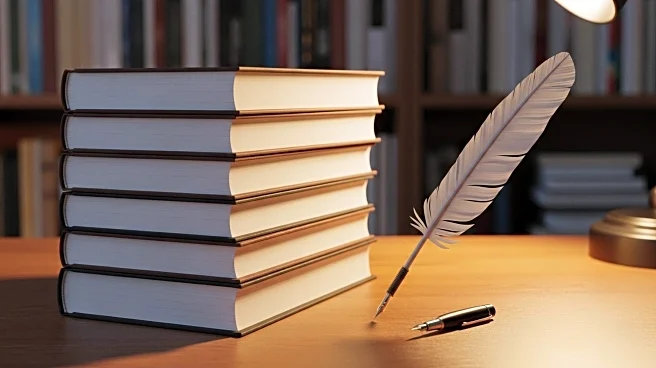What's Happening?
A class action lawsuit against AI company Anthropic is set to have a hearing on September 8, where details of a settlement are expected to be released. The lawsuit, announced in July, initially suggested that up to seven million books might be involved. However, recent information indicates that the number of books included may be significantly lower. The Association of American Publishers (AAP) clarified that the case is limited to books illegally downloaded from pirate sites Library Genesis and Pirate Library Mirror. To qualify for inclusion, books must have been published and registered with the U.S. Copyright Office within specific timeframes. Judge William Alsup defined eligible books as those possessing an ISBN or ASIN, registered within five years of publication, and before being downloaded by Anthropic, or within three months of publication. The AAP noted that works published or registered after July 2022 are outside the class, with some works having a cutoff of June 2021.
Why It's Important?
The outcome of this lawsuit could have significant implications for authors and publishers, particularly concerning copyright enforcement and the protection of intellectual property in the digital age. If the settlement narrows the scope of eligible works, many authors may not receive compensation for unauthorized use of their books. This situation highlights the challenges faced by the publishing industry in safeguarding content against unauthorized digital distribution. The case also underscores the importance of timely copyright registration, as some authors have realized their works may not be included due to registration delays. The resolution of this lawsuit could set precedents for future cases involving AI companies and digital content.
What's Next?
The September 8 hearing will likely provide more clarity on the settlement process, including notice and claims procedures. The court's guidance will be crucial in determining the next steps for authors and publishers seeking compensation. The AAP CEO, Maria Pallante, indicated that the parties are preparing a submission for the court by September 5, which will initiate the settlement approval process. Authors and publishers will need to stay informed about the court's decisions to understand their rights and potential recovery options.
Beyond the Headlines
This case raises broader questions about the ethical use of AI in accessing and distributing copyrighted materials. It challenges the industry to consider how AI technologies can be regulated to prevent unauthorized use of intellectual property. The lawsuit may prompt discussions on the need for stronger legal frameworks to protect authors' rights in the digital landscape.










